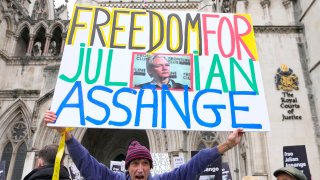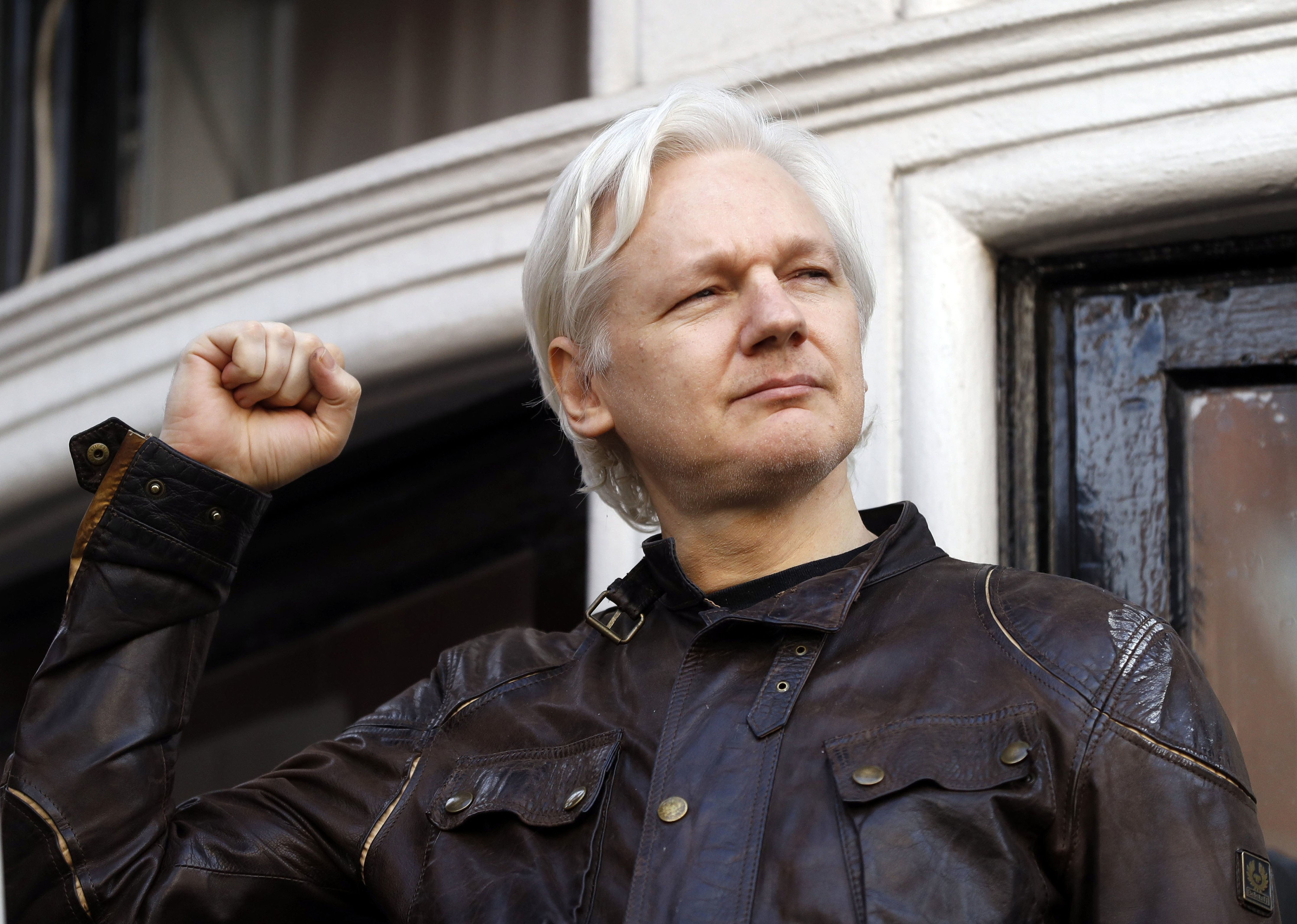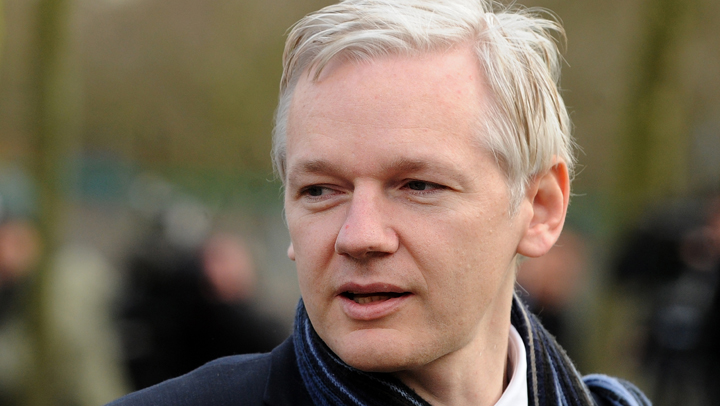
Julian Assange's lawyers began their final U.K. legal challenge Tuesday to stop the WikiLeaks founder from being sent to the United States to face spying charges, arguing that his actions had exposed serious criminal actions by U.S. authorities and were “of obvious and important public interest.”
Assange himself was not in court. Judge Victoria Sharp said he was granted permission to come from Belmarsh Prison, where he has been held for five years, but had chosen not to attend. Assange's lawyer, Edward Fitzgerald, said the 52-year-old Australian was unwell.
Assange has been fighting extradition for more than a decade, including seven years in self-exile in the Ecuadorian Embassy in London and the last five years in the high-security prison.
He has been indicted on 17 charges of espionage and one charge of computer misuse over his website’s publication of classified U.S. documents. U.S. prosecutors say Assange helped U.S. Army intelligence analyst Chelsea Manning steal diplomatic cables and military files that WikiLeaks later published, putting lives at risk.
To his supporters, Assange is a secrecy-busting journalist who exposed U.S. military wrongdoing in Iraq and Afghanistan. They argue that the prosecution is politically motivated and he won’t get a fair trial in the U.S.
Dozens of supporters holding “Free Julian Assange” signs and chanting “there is only one decision – no extradition” held a noisy protest outside the ne-Gothic High Court in London, where Assange’s attorneys are asking judges to grant a new appeal hearing, his last legal roll of the dice in Britain.
If the judges rule against Assange, he can ask the European Court of Human Rights to block his extradition — though supporters worry he could be put on a plane to the U.S. before that happens, because the British government has already signed an extradition order.
“He is being prosecuted for engaging in ordinary journalistic practice of obtaining and publishing classified information, information that is both true and of obvious and important public interest,” his lawyer Fitzgerald said in court.
In written submissions, the lawyer said that “Julian Assange and WikiLeaks were responsible for the exposure of criminality on the part of the U.S. government on an unprecedented scale.”
Get a weekly recap of the latest San Francisco Bay Area housing news. Sign up for NBC Bay Area’s Housing Deconstructed newsletter.
Fitzgerald also said there is a risk Assange "will suffer a flagrant denial of justice” if sent to the U.S.
While several of Assange’s arguments against extradition have already been rejected by British courts, his lawyers want the judges to consider several new arguments.
They say Assange is facing a political prosecution for exposing “pervasive criminality,” and that sending him across the Atlantic would breach the British-American extradition treaty.
“It is an abuse of process to seek extradition for a political offense,” Fitzgerald said.
Assange's lawyers also argue that “publishing leaked U.S. national security information was both legal and commonplace” in 2010, when WikiLeaks disclosed a vast trove of classified documents. They also say WikiLeaks’ publication is “protected by universally recognized and entrenched principles of free speech.”
Assange's wife Stella Assange — a lawyer whom he married in prison in 2022 — says his health has deteriorated during years of confinement.
“His health is in decline, mentally and physically. His life is at risk every single day he stays in prison, and if he’s extradited, he will die,” she told reporters last week.
Assange’s legal troubles began in 2010, when he was arrested in London at the request of Sweden, which wanted to question him about allegations of rape and sexual assault made by two women. In 2012, Assange jumped bail and sought refuge inside the Ecuadorian Embassy, where he was beyond the reach of U.K. and Swedish authorities — but was also effectively a prisoner in the tiny diplomatic mission.
The relationship between Assange and his hosts eventually soured, and he was evicted from the embassy in April 2019. British police immediately arrested him for breaching bail in 2012. He has been held in London’s Belmarsh Prison throughout his extradition battle. Sweden dropped the sex crimes investigations in November 2019 because so much time had elapsed.
Assange’s lawyers say he could face up to 175 years in prison if convicted, though American authorities have said the sentence is likely to be much shorter than that.
A U.K. district court judge rejected the U.S. extradition request in 2021 on the grounds that Assange was likely to kill himself if held under harsh U.S. prison conditions. Higher courts overturned that decision after getting assurances from the U.S. about his treatment. The British government signed an extradition order in June 2022.
Meanwhile, the Australian parliament last week called for Assange to be allowed to return to his homeland.
“Regardless of where people stand, this thing cannot just go on and on and on indefinitely,” Prime Minister Anthony Albanese said.
The judges, Sharp and Jeremy Johnson could deliver a verdict at the end of the two-day hearing on Wednesday, but they’re more likely to take several weeks to consider their decision.



